Key sports law cases of 2017 - UK & Ireland
Tuesday, 09 January 2018As we begin the new year, we are running a series of articles reflecting on the key legal issues impacting sport in different jurisdictions and regions around the world in 2017.
For this article we have approached some of the leading sports lawyers in the United Kingdom and Ireland to share their views on what they think was the biggest sports law issues of 2017.
We would like to thank all of the contributors to this article for taking the time out of their busy schedules to share their views with us.
Featured experts:
- Dan Chapman, Senior Partner, Leathes Prior Solicitors
- Ben Rutherford, Senior Legal Counsel & Integrity Unit Manager, World Rugby
- Mark Hovell, Head of Sport, Mills & Reeve
- Mark Gay, Partner, Solesbury Gay
- Tom Solesbury, Partner, Solesbury Gay
- Gemma White, Barrister at 3PB
- Zane Shihab, Partner, Sports Department, Kerman & Co
- Nick Bitel,Consultant, Kerman & Co
- Jamie Singer, Partner at Onside Law
- Keith Oliver,Head of International, Peters & Peters Solicitors LLP
- Jonathan Tickner, Partner at Peters & Peters Solicitors LLP
- Ian Lynam, Founding Partner at Northridge Law LLP
- Robert McTernaghan BL, Barrister at the Bar of NI / Ireland
- Jon Walters, Partner, Northridge Law LLP
- Louis Weston, Barrister, 3PB
- Jeremy Drew, Head of Sports Law, Partner at RPC
- Cliodhna Guy, Head of Legal and Compliance, The Turf Club
- Andrew Haywood, Partner, Employment, Head of the Sports and Entertainment Group, Penningtons Manches LLP
We hope you enjoy the article. If you think there’s anything you would have liked to have seen be mentioned please feel free to tweet us @LawInSport or email us with your suggestions at
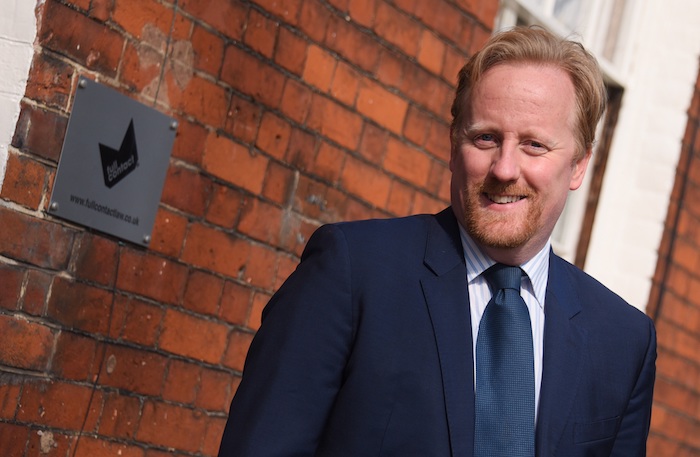 Dan Chapman
Dan Chapman
Senior Partner, Leathes Prior Solicitors
Whilst 2017 delivered up a veritable feast of sports law issues, it will for me always be remembered as the year when finally governing bodies realised that they were accountable. The sight of Greg Clarke and Martin Glenn of the Football Association struggling before the DCMS Select Committee will live long in the memory – not just on the Aluko matter, but showing an inability to comment on issues that they ought to have known about (i.e. Lucy Ward). The significance for all sport, not just football, is that what might have in the past been considered legal matters (that perhaps could have been resolved confidentially and via settlement) are not just as likely to play out in the media and before Parliament.
Ben Rutherford
Senior Legal Counsel & Integrity Unit Manager, World Rugby
The fallout from the anti-doping crisis in Russia has continued to dominate sports law globally in 2017. This issue will have practical impacts flowing into 2018 for athletes and event organisers in the lead-up to the 2018 Winter Olympic Games and for Anti-Doping Organisations more broadly through the WADA International Standard for Code Compliance by Signatories (ISCCS). Elsewhere in the integrity space, 2017 has seen more sports and events fall victim to match-fixing. The education of participants and stakeholders and the enforcement of anti-corruption regulations have occupied many sports lawyers in the UK, Ireland and elsewhere during 2017. Linked to this we have seen some jurisdictions (e.g. Australia) tighten betting advertising regulations with other jurisdictions and betting operators no doubt watching developments closely.
 Mark Hovell
Mark Hovell
Head of Sport, Mills & Reeve
2017 was an interesting year for FFP. we saw the first “break-even” case come to the CAS – Galatasary v UEFA 2016/a/4492. Domestically, we saw the QPR v EFL case run through the football disciplinary commission of the football league. Whilst the fair play rules were not identical (the reporting periods, the allowable deviations and amounts that owners could inject as equity, and the sanctions all differed), nor were the sanctions under appeal (Galatasary would miss the next UEFA champions league it qualified for; GPR had been fined in the region of £40m), however both cases considered, inter alia, EU Competition Law, mainly Article 101 of the Treaty on the Functioning of the European Union (restricting competition) and Article 102 of the TFEU (abuse of a dominant position). Whilst the outcome was the same in both, in that the appeals were dismissed and the sanctions stood, only the panel in the QPR case was presented with any expert economic and accounting opinions to support the submissions.
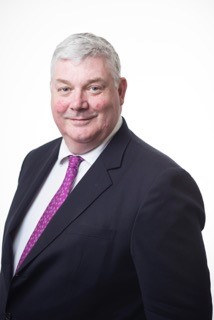 Mark Gay
Mark Gay
Partner, Solesbury Gay
Tom Solesbury
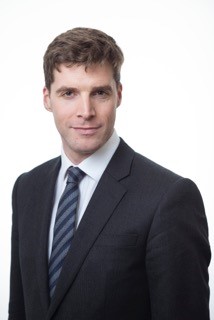
Partner, Solesbury Gay
Governance in all its aspects particularly in light of the fact that Governing Bodies have very little track record in delivering in this area. Will the excellent UK Sport Code be honoured only in the breach?
Financial fair play – at last there is movement. As the FFP rules have now been validated,there is no bar to their enforcement.
 Gemma White
Gemma White
Barrister at 3PB
2017 has seen the beginning of a clear drive to further promote equality for women across many sectors of society, and I predict that protecting women from sexual harassment and providing a platform to address it will be a number one priority in sport for 2018. With high profile sexual assault claims made by celebrities, trending hashtags of #metoo and #morethanmean across social media platforms and the Times Magazine person of the year 2017 announced as “the silence breakers”, the sexual harassment and bullying of women has well and truly been thrown into the spotlight.
Zane Shihab
Partner, Sports Department, Kerman & Co
Nick Bitel
Consultant, Kerman & Co

In our opinion, the biggest sports law issue in 2017 is the case involving the International Skating Union (the “ISU”). As many will know, in 2016 the European Commission announced its preliminary view that the ISU rules under which athletes face severe penalties (up to a life-time ban) for participation in unauthorised speed skating events are in breach of EU antitrust rules. The ISU eligibility rules ban participants from international speed skating events such as the Olympic Games or the World Championship, if they participate in international speed skating events that are not approved by the ISU. A decision is expected in December this year and, if the Commission follows its preliminary view that the rules unduly restrict the athletes' commercial freedom, the ruling could become as important a milestone as the landmark 1995 Bosman ruling (which paved the way for free movement of football players in the EU), as it will set a precedent that would erode the power of sporting governing bodies by making it easier for breakaway competitions to be set up without the approval of a sports’ governing body. Without wishing to overstate the implications of this case, the entire European model of sport is in jeopardy.
 Jamie Singer
Jamie Singer
Partner, Onside law
It may only have just happened, but the IOC’s decision to ban Russia from competing at the Winter Olympics is a critical moment for sports law and the enforcement of sporting laws. Richard McLaren’s report uncovered a government backed strategy to flout anti-doping laws and a year on it’s clear RUSADA cannot be trusted to test and police its athletes. However, international governing bodies do not always have the stomach for enforcing their rules and it is to the IOC’s credit that they have taken the ground breaking step of banning the entire Russian team from the Winter Olympics (although athletes deemed “clean” will be able to compete under a neutral flag).
It is sadly ironic that in the same week that the IOC president attacks Russia for “an unprecedented attack on the Olympic Games and sport” the FIFA president shared a platform with Vitaly Mutko, the man widely believed to have been at the heart of Russia’s doping strategy and now banned for life from the Olympics. Mutko remains President of the Russian Football Federation and chair of the World Cup organising committee. Nevertheless, FIFA insisted that the IOC’s announcement would have no impact on preparations for the World Cup in Russia next summer.
Keith Oliver
Head of International, Peters & Peters Solicitors LLP
Jonathan Tickner
Partner, Peters & Peters Solicitors LLP

There has been a growth in current and former sports professionals seeking to recover losses incurred as a result of their investments into failed tax investment schemes. As a result of these mis-sold schemes, these sports professionals now face significant losses including huge tax liabilities from HMRC. The focus of the litigation claims is not just on the promoter of the schemes, but also the IFAs, Agents and Financial Institutions that were involved during the relevant period. Claims do not just include the losses suffered but also the secret or undisclosed commission payments received by the IFAs and Agents who gave advice or introduced the investment schemes to the players. This is particularly hard for sporting professionals whose earning potential is at its peak for only a few years. A number of those affected are now facing bankruptcy.
[Peters & Peters are acting in one such set of legal proceedings for sports professionals who have all suffered significant financial losses as a result of these schemes being mis-sold to them as legitimate opportunities in which to invest in film or other media businesses. They were misinformed that the tax reliefs had been approved by HMRC and were permitted by law. ]
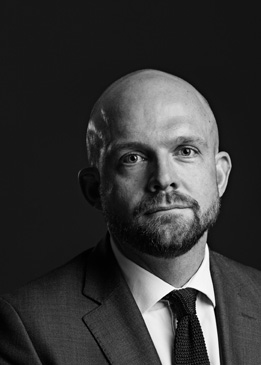 Ian Lynam
Ian Lynam
Founding Partner, Northridge Law LLP
One notable trend in football in 2017 was an increasing willingness for football clubs to hold players to their contract notwithstanding “market value” offers from elsewhere (e.g. Coutinho, Van Dijk, Sanchez, Ozil etc.) I suspect that a reaction to this trend will be an increase in players and agents considering the unilateral termination track (i.e. Article 17 of FIFA’s RSTP) which would likely result in players refusing to sign regular contract extensions (as are used by many Premier League clubs) so as to avoid extending their “protected period”.
Robert McTernaghan BL
Barrister at the Bar of NI / Ireland
As another new year is imminent, the area of sports law has exploded in Ireland in 2017. I & three colleagues, Mr Tim O’Connor BL, Mr Paul McGarry SC (Chairman of the Bar of Ireland) & Mr David Barniville SC, (Now the Honourable Mr Justice Barniville) founded the first Sports Law Bar Association in July 2017, which is open to all practising barristers on the island of Ireland, & will be having our first sports law conference in February, 2018.
The biggest news this year has to be in my humble opinion, The European Commission v International Skating Union eligibility decision, on competition & antitrust law. We will all need to see how this plays out in 2018 for breakaway leagues across all sports, as the ramifications could be huge.
As I mentioned in this piece last year, the Pat Hickey IOC scandal rumbled on until the publishing of the Moran Report in the summer of 2017, following on from that Mr Hickey resigned from the IOC board in September 2017. It will be interesting to see how the IOC moves forward in 2018 with regards to its governance.
If I was to pick one issue, it would have to be the issue of “concussion”, here in the North the charge has been led by the parents of young Ben Robinson (14), who have relentlessly campaigned on the issue after the tragic death of Ben from Second Impact Syndrome in a kids rugby school match in 2011.
This issue was the subject of a BBC documentary with Alan Shearer and Dr Willie Stewart in November surrounding the tragic death of Jeff Astle & dementia in football from repeatedly heading a football. This would be the key sports law issue to watch out for in the UK & Ireland in 2018.
 Jon Walters
Jon Walters
Founding Partner, Northridge Law LLP
The recent decision of the European Commission on the penalties imposed by the International Skating Union for athletes participating in unsanctioned speed skating competitions has important implications for rights holders, participating teams/athletes and organisers of new or rival competitions. The penalties (ranging up to a lifetime ban) were not considered to be necessary or proportionate means of protecting the sport or athletes and were, therefore, found to be in breach of Article 101 TFEU. Of particular interest was the finding that the protection of the ISU’s own commercial interests was not a legitimate objective for imposing the penalties. Established sports competitions have always enjoyed a degree of protection by their control of the activities of participating athletes and teams outside official competition. In an increasingly dynamic and fertile environment for the creation of new formats of sports and competitions, the ISU decision promises to be a significant landmark.
Louis Weston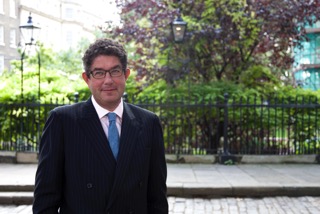
Barrister, 3PB
2017 has been the year in which decent and fair treatment has been seen to have been lacking in sport as in so many other fields. There has been a critical mass of talented women and men who have felt able to speak out against the appalling treatment that they have received and finally, and in many cases too late, be seen to have been let down by their sports.
 Jeremy Drew
Jeremy Drew
Head of Sports Law, Partner at RPC
Many people, including myself, predicted 2016 to be the year of eSports. The range of areas covered by eSports continues to grow, with traditional sports converging with eSports in a variety of innovative ways – such as in motorsports with Formula E racing real cars versus simulators, or football clubs extending their branding by collaborating with gaming stars.
However, competitive gaming is the real standout development to me, and one which has caused the most significant issues. I attended the Insomnia Gaming Festival again this year with an eSports client, and was hooked by the sheer scale of the participation (not least by my son in the Rocket League tournament!). An interesting emerging issue for 2017 has been the convergence with gambling, and specifically the way in which children can become involved in gambling to purchase expensive skins or in game equipment. It is true that many big headlines of 2017 understandably went to various on-going integrity scandals and governance issues, but I have to take my hat off to the way in which the various elements comprising eSports has continued to develop, and it will be interesting to see how it deals with the opportunities and challenges it and gambling operators no doubt face during the years to come.
Cliodhna Guy
Head of Legal and Compliance, The Turf Club
Integrity issues remained the watch word for 2017. The Icarus documentary came out in summer 2017 and brought new information about the ongoing issues with Russian sports as well as raising new questions. It remains to be seen how this will be resolved, if in fact it will – sanctions and suspensions may have some effect but fundamental change will be required, not only in Russia, to ensure future integrity. Governance of federations is still a big topic and the implementation of changes required by funding bodies goes on. How failures to comply with requirements will be treated will dictate future compliance. Athlete rights continue to be a key topic including the political aspect such as the “taking the knee” protests by athletes in the NFL and across the US.
Doping is, as always, a big issue for sports and will continue to be so. What changes may result from the WADA 2021 Code review and recent scandals will be interesting to see.
 Andrew Haywood
Andrew Haywood
Partner, Employment, Head of the Sports and Entertainment Group, Penningtons Manches LLP
Sex, Drugs, but absent the Rock ‘n’ Roll, 2017 almost had it all. Athlete welfare became a central issue following Jess Varnish’s allegations of bullying and discrimination after being dropped from the Olympic squad. This unfortunately proved not to be an isolated incident confined to British Cycling with the FA widely criticised for its handling of the Eniola Aluko case and allegations of institutional racism within the British Bobsleigh and Skeleton Association coaching staff. These high profiles cases, alongside others, flagged issues of duty of care, discrimination and highlighted inadequate grievance and whistleblowing procedures all of which remain under scrutiny. Separately the ripple effect of the IOC’s unprecedented decision to ban Russia from participating in the 2018 Winter Olympics following the conclusion of a 17-month investigation will continue to be felt into 2018 and beyond.
- Anti-Doping Arbitration Athletics Boxing Court of Arbitration for Sport (CAS) Cycling Data Dispute Resolution Employment Esports European Union FIFA Football Governance International Association of Athletics Federations (IAAF) International Olympic Committee (IOC) International Skating Union's (ISU) International Tennis Federation (ITF) Ireland Olympic Paralympic Player Welfare Regulation Regulations on the Status and Transfer of Players (RSTP) Rio 2016 Russian Anti-Doping Agency (RUSADA) Sponsorship Treaty on the Functioning of the European Union (TFEU) United Kingdom (UK) WADA International Standard for Code Compliance by Signatories (ISCCS) World Anti-Doping Agency (WADA)

 Global Summit 2024
Global Summit 2024